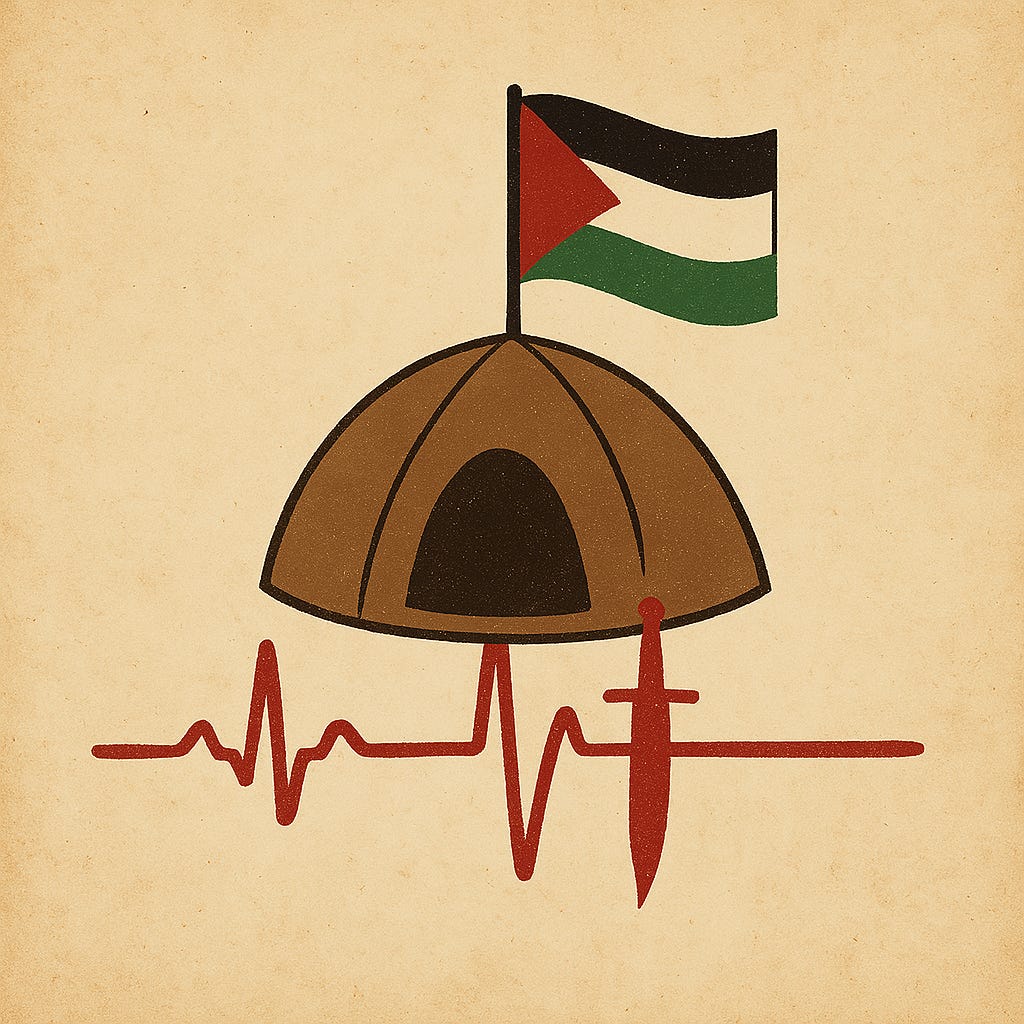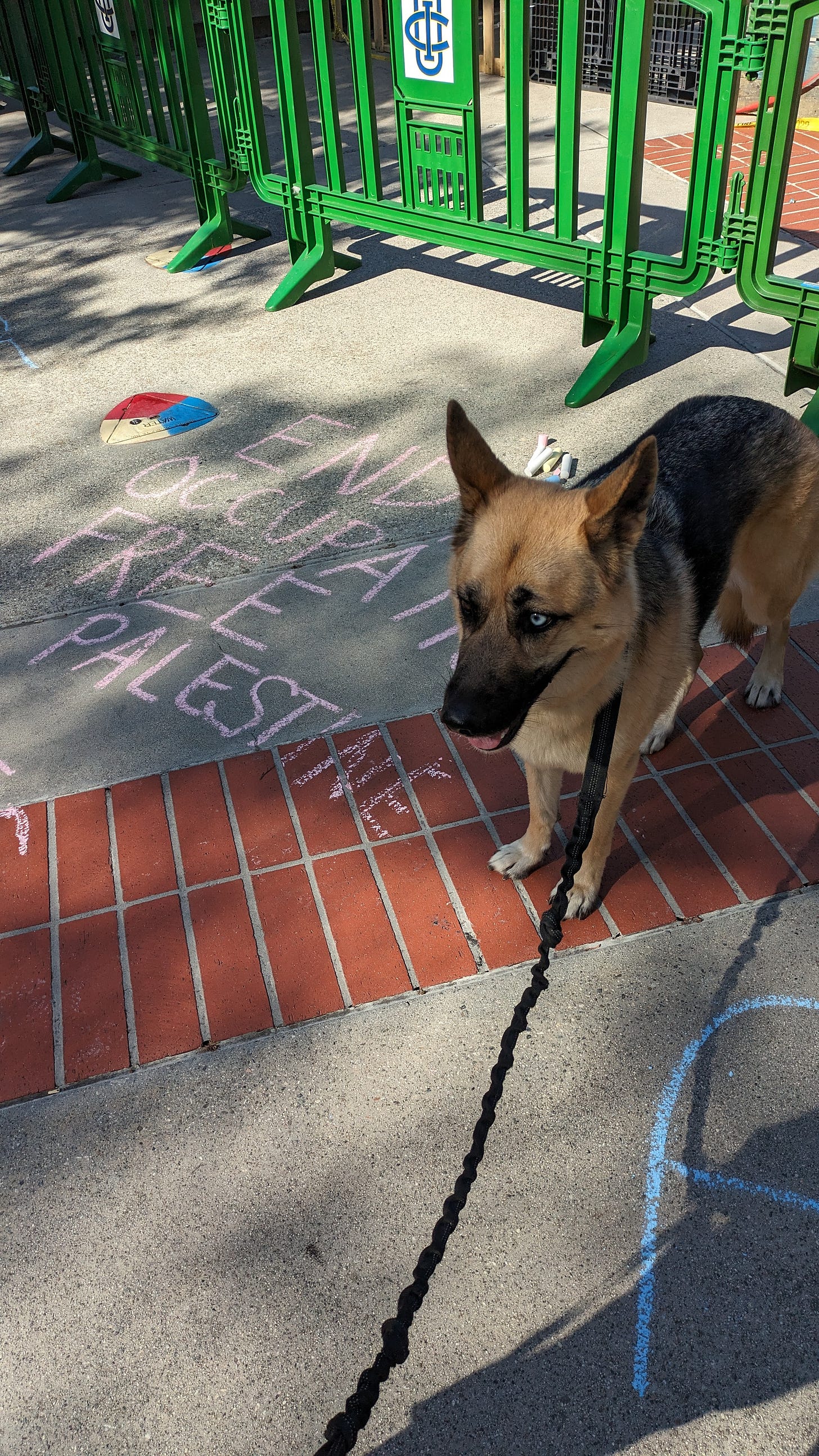Pulse Check: Mahmoud Khalil, Columbia, and The Encampments
Documenting the stakes of student resistance in real time.
This isn’t just a film. It’s a frontline dispatch. The Encampments is a protest preserved and still fighting.
Now in theaters nationwide, The Encampments captures the historic Columbia University protests that helped ignite a wave of global student resistance against the ongoing genocide in Palestine. The film offers an embedded look at the encampments, highlighting the stakes, strategy, and spirit of a student-led movement still unfolding across campuses today.
Directed by Kei Pritsker and Michael T. Workman and produced by Munir Atalla, Matthew Belen, and Workman, the film is a collaboration between BreakThrough News and Watermelon Pictures. Notably, Macklemore and Benjamin Becker served as executive producers, helping amplify the voices of the student activists.
The film follows students resisting Columbia’s administration, most notably Mahmoud Khalil, whose case now sits at the center of a national conversation. A Columbia alum and encampment negotiator, Mahmoud Khalil, was abducted by ICE in front of his pregnant wife outside his apartment in New York and is now being held in a Louisiana detention facility. Though a U.S. resident, he faces deportation in what many are calling a politically motivated crackdown on student activism. This documentary was initially scheduled for release later this year but was pushed forward because of Khalil’s detention. The urgency is warranted: just recently, a judge agreed with the Trump administration's decision to deport him. His case remains active and deeply concerning.
He appears heavily in the film, and it’s clear that this is a “kill the negotiator” situation. The university invites student leaders to the table not to listen but to identify them for targeting. Other campuses have used this tactic against student protestors as well. Make no mistake: the Trump administration is targeting Columbia students precisely because of the example they’ve set—across the U.S. and around the world. Further, the government is making an example of Khalil, a clear warning to anyone who dares exercise their First Amendment rights contrary to the US agenda.
The film links today’s movements to past ones. Most notably when students took over Columbia’s Hamilton Hall and renamed it Hind’s Hall after Hind Rajab, a six-year-old Palestinian girl killed by Israeli forces. The action echoes a 1985 takeover of the same building by Black students protesting university investment in the South African Apartheid regime. The film weaves these past and present threads beautifully, reminding us that student resistance is never isolated. It’s always part of something bigger.
The Encampments is crisp, intentional, and expertly made. What makes The Encampments stand out most is that this isn’t a retrospective made by outsiders. This is a documentary that emerged from the movement itself. It wasn’t made after the fact. It was made within the encampments by students, with students, in real time. And you feel that. The footage is raw, intimate, and beautifully grounded in the shared experience of resistance: tense negotiations, shared meals, cold nights, chants, and deep collective resolve. The film itself is clearly part of the resistance strategy, and that’s my favorite thing about it.
Watching this as someone who participated in the encampments on my own campus—with my service dog, Python—was deeply moving.
The documentary captures the risks students are taking and the strategies they’re deploying. Because as calculated and vicious as this administration has been—ICE abductions, visa threats, degree cancellations—students are equally precise and tactical. The film feels like a chess move: a public counter to institutional erasure, a strategic artifact, a cultural act of defense.
This left me thinking about what it means to be an alum now. It’s tempting, after finishing, to walk away entirely—especially after the chaos and exhaustion of completing a degree under fire. But The Encampments reminded me that alumni matter, too. There’s space to stay connected in ways that feel good and meaningful. Even after a degree, the fight doesn’t necessarily stop.
The message I left with: We forge on. Khalil’s case is critical, but the movement is about the dream of a free Palestine.
If you have the chance to see this film, go. If you were part of the encampments, share your story. And if you’ve got thoughts after watching, drop them in the comments.
Python and I will be here listening.



